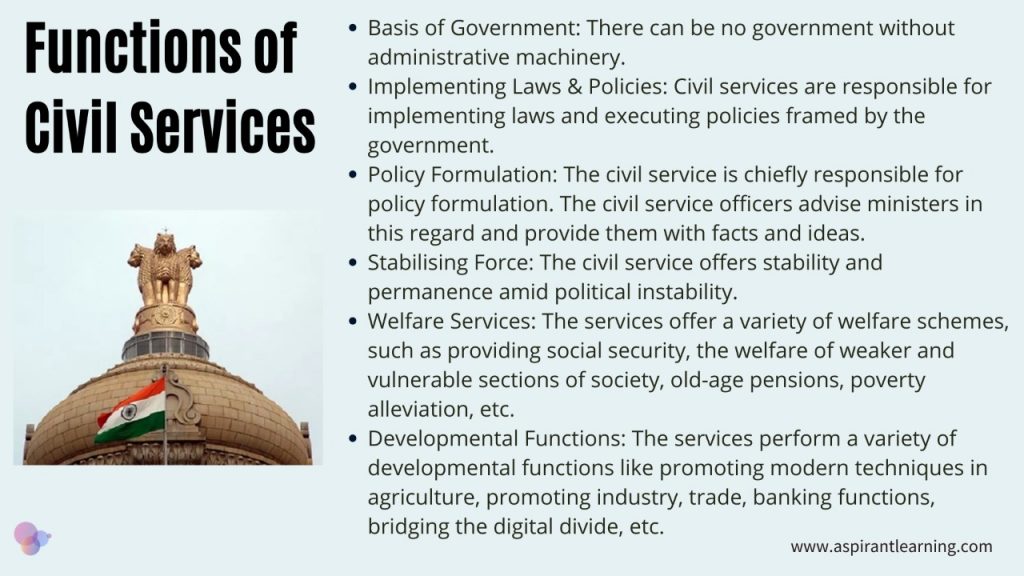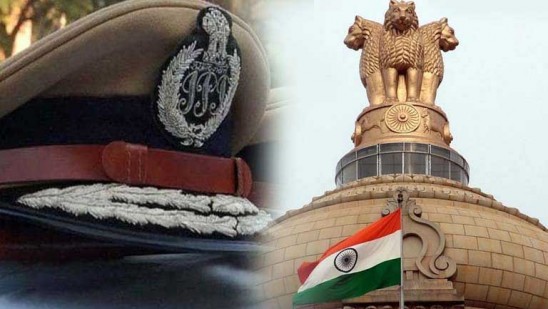News Highlight
Civil Services of India: excluding civil servants from a State government’s realm negates autonomy, Kejriwal government tells SC.
Key Takeaway
- A Constitution Bench led by the Chief Justice of India on December 10 asked the Kejriwal government whether civil servants posted in the national capital concerning public order, police and land will come outside the purview of the executive power of the Delhi government.
Role of Civil Services in Democracy
- In a democracy, civil servants play a critical role in the administration, policy creation and implementation, and in moving the country toward growth and development.
- The civil services form a part of the executive.
- While ministers are temporary executive members re-elected or changed at the people’s will (through elections), civil employees are permanent executive members.
- Civil officials answer to the political executive, the ministers.
- Thus, civil services are a part of the government.
- Civil service officers are the permanent workforce of the various governmental departments.
- Additionally,they are essentially administrative experts.
- They are also known as the bureaucracy and the public service.
Importance of Civil Services
- Firstly, the civil service is present throughout India and has a solid binding character.
- It is critical to effective policymaking and regulation.
- It provides nonpartisan advice to the country’s political leadership, even during political unrest.
- The service provides excellent coordination between the many institutions of governance, as well as between numerous departments, bodies, and so on.
- In addition, it provides service delivery and leadership at various administrative levels.
Constitutional Provisions Related to Civil Services
- According to Articles 53 and 154, the President or Governor has direct or indirect administrative power over the Union and the States.
- These officers comprise the permanent civil service and are governed by Part XIV of the Constitution (Union and State Services (Article 308-323)).
- Government of India (Business Transactions) Rules: These Rules govern how officers are obligated to assist the President or Governor in carrying out their executive tasks.
- Article 311 – Dismissal, removal, or reduction in rank of civil servants employed by the Union or a State.
- Furthermore, Article 312 – Services Provided Throughout India.
Problems Affecting Civil Services Today
- Firstly, professionalism and capacity building is lacking.
- An inefficient incentive system that fails to recognise and reward deserving and upright civil personnel.
- Rigid and antiquated regulations and procedures prevent city officials from exercising individual judgement and performing efficiently.
- There is a lack of accountability and openness and inadequate protection for whistleblowers.
- In addition, political meddling leads to arbitrary transfers and tenure insecurity.
- A degradation of ethics and morals has resulted in pervasive corruption and nepotism.
- Furthermore, Civil servants themselves are resistant to change.

Way Forward
- Rationalization and harmonisation of services
- The existing 60-plus different civil services at the national and state levels must be reduced through service rationalisation and harmonisation.
- Encourage lateral entry
- The appointment of experts at higher levels of government will give much-needed expertise.
- Outsource service delivery
- Efforts must be made to outsource service delivery to lessen reliance on administrative machinery.
- Incentivisation
- Examine existing programmes and implement new incentive schemes for exceptional performance.
Pic Courtesy: India Today
Content Source: The Hindu



